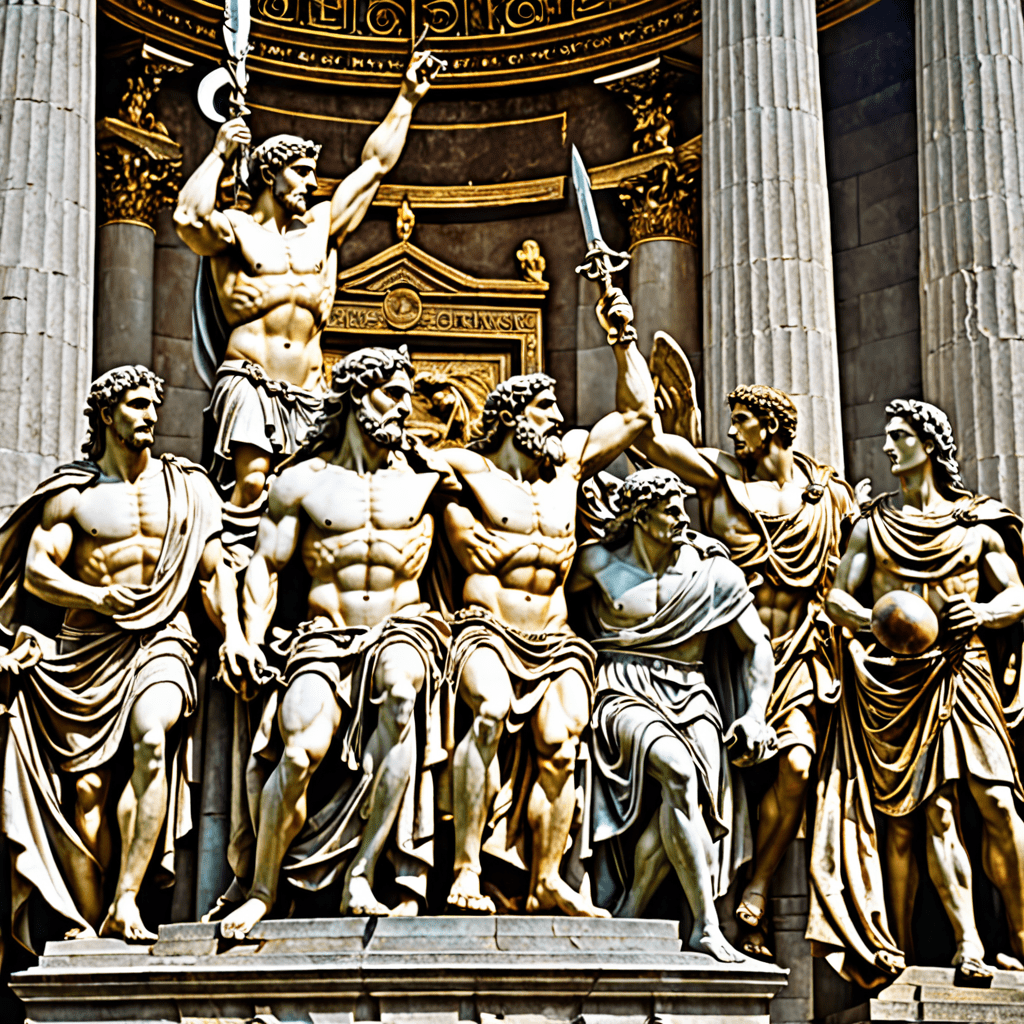The Intriguing World of Lesser-Known Deities in Roman Mythology
Who were the Lesser-Known Deities in Roman Mythology?
In Roman mythology, aside from the famous gods and goddesses like Jupiter, Mars, and Venus, there existed a multitude of lesser-known deities who played essential roles in the ancient belief system. These deities often had specific domains or attributed to natural elements, virtues, or aspects of daily life.
Some of the lesser-known deities include Necessitas, the goddess of destiny and requirement; Fornax, the goddess of ovens and baking; Volutina, the goddess who protected the pomace of the olive during the process of pressing.
What were the roles of Lesser-Known Deities in Roman Mythology?
While the major Roman gods and goddesses had more widespread importance, the lesser-known deities held specific functions or oversaw niche aspects of Roman life and society. For example, Picumnus and Pilumnus were guardians of newborns and children, while Intercidona presided over childbirth.
The domain of such deities was often related to agricultural practices, domestic rituals, and individual well-being, filling gaps in the broader religious framework of Roman mythology.
How were Lesser-Known Deities honored in Roman Culture?
Although lesser-known, these deities were not overlooked in Roman religious practices. Worshippers would offer prayers, sacrifices, and ceremonies to honor and seek favor from these deities. Shrines dedicated to them could be found in homes, across fields, and along roads to ensure their benevolence.
Furthermore, festivals and celebrations were held in commemoration of these less prominent gods and goddesses, reaffirming their importance in Roman mythology and society despite their limited acknowledgment in historical texts.
Exploring the Legacy of Lesser-Known Deities in Roman Mythology
While the tales of major Roman gods and goddesses have endured through centuries, delving into the realm of lesser-known deities provides a deeper understanding of the intricacies of Roman belief systems and cultural practices. Each deity contributed uniquely to the tapestry of Roman mythology, emphasizing the diversity and complexity of ancient Roman religious traditions.
By recognizing and exploring the roles and significance of these lesser-known deities, we uncover a richer and more nuanced perspective of the spiritual world of ancient Rome, shedding light on lesser-explored facets of one of history’s most renowned civilizations.
FAQs About Lesser-Known Deities in Roman Mythology
Who are lesser-known deities in Roman mythology?
In Roman mythology, lesser-known deities are gods and goddesses who did not have prominent roles but were still part of the Roman pantheon. These deities were often associated with specific aspects of life, nature, or activities.
Can you give examples of lesser-known deities in Roman mythology?
Examples of lesser-known deities in Roman mythology include Furrina, the goddess of springs and wells; Flora, the goddess of flowers and blossoms; and Letum, the personification of death.
What roles did lesser-known deities play in Roman mythology?
The roles of lesser-known deities varied, with each deity having influence over different aspects of life. Some were protectors of specific activities or places, while others represented abstract concepts like hope, dreams, or boundaries.
Were lesser-known deities worshipped in ancient Rome?
Yes, lesser-known deities were worshipped in ancient Rome, although their cults were often smaller and more localized compared to major gods like Jupiter or Mars. People would offer prayers and sacrifices to these deities for various needs and blessings.
How can we learn more about lesser-known deities in Roman mythology?
To learn more about lesser-known deities in Roman mythology,



